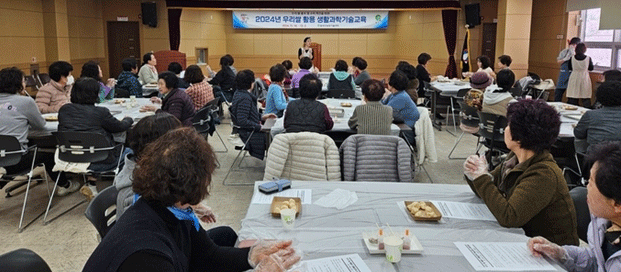The Decline of Rice in South Korean Diets
In recent years, South Korea has witnessed a steady decline in rice consumption. Per capita annual consumption fell to 56.4 kg in 2023, a record low since statistics began in 1962. This represents a stark drop from the peak of 136.4 kg in 1970, driven by shifts toward bread, noodles, and other alternatives in modern diets. These trends have been exacerbated by government policies incentivizing crop diversification to address oversupply issues, which have plagued the market for years. In 2024, rice production is projected to decline further to 3.6 million tonnes, while consumption may drop to 3.95 million tonnes, leaving significant surplus.
Addressing the Crisis Through Education
Recognizing the importance of preserving traditional rice culture, Dalseong-gun Agricultural Technology Center has initiated a program, “Life science technology education using our rice,” targeting over 500 rural women and lifestyle improvement members. The program blends theory and practice by educating participants about the cultural significance and nutritional value of Korean rice and guiding them through the preparation of traditional rice-based desserts like sa-gwa danja (apple rice cake). This simple yet impactful dessert exemplifies how rice can be creatively incorporated into everyday meals, making it more appealing to younger generations.
Building a Sustainable Future
Such efforts aim to not only promote rice consumption but also empower rural communities. By equipping participants with knowledge and skills, the program fosters pride in local agricultural products and encourages innovative uses of rice. These grassroots initiatives align with broader national strategies to stabilize the rice market and revitalize its role in Korean culture.
The decline in rice consumption is a complex issue tied to changing lifestyles and agricultural policies. However, community-based programs like the one in Dalseong-gun offer a promising path to re-establish rice as a cornerstone of Korean food culture. Combining education with hands-on experience can inspire broader engagement with traditional and innovative rice-based foods, ensuring a sustainable future for Korean agriculture.
Error





